January 1 -
Hatsumode (first New Year's visit to shrines and temples).
Senso-ji Temple always attracts a large number of visitors on New Year's Day then any other temple or shrine in Japan.
February 3 -
Setsubun signifies the first day of spring by lunar calendar.
It is custom to throw beans this day to drive away the evil spirits, so at the Senso-ji Temple there is a Bean Throwing Festival and a Dance of Fukuji.
February 8 -
Hari-kuyo (memorial service for needles) Senso-ji Temple
Sunday before March 3 - The Edo Nagashi-bina (Floating Dolls in the Edo for the Girl's Festival) Azumabashi Bribge
It is a Japanese traditional event to wash away the spirit of misfortune and to wish for their children to avoid diseases and disasters by floating Nagashi-bina dolls on the river from the terrace of Sumida Park.
March 18 - Kinryu-no-mai (Golden dragon dance).
According to the legend, 1000 pine trees suddenly appeared overnight near the Senso-ji Temple on the 18th day of March. After three days, a golden 30 meters dragon measuring descended into the pine trees from the heavens and was never seen again. The Golden Dragon Dance is based on this story.
Late March - Cherry blossom Festival Sumida River
Second Sunday of April - Shirasagi-no-mae (White heron dance) Senso-ji Temple
Mid April -
Yabusame (Horseback archery) Sumida Park
Follows the traditional style recreated with the cooperation of the head of the Ogasawara School of Archery and Horsemanship.
Mid April - Regatta between Waseda and Keio Universities - Sumida River
Late April - Kankon Kutsu Ichi (Shoe fair) – Tamahime-inari Shrine
Late April - Naki-zumo Taikai (Crying Baby Contest) - Senso-ji Temple
May 5 - Takara-no-mae dance (Treasure Dance, which celebrates the blessings and goodness of the Kannon) - Senso-ji Temple
Saturday and Sunday around May 17 - Sanja-matsuri Festival (Asakusa's Main Spring Event)
The Sanja Festival is famous for its spectacular procession of portable shrines. The portable shrines from parishioner organizations of Asakusa Shrine in each of the 44 neighborhoods gather at 1 p.m. on Saturday in the precincts of Sensoji Temple, giving Asakusa a festive atmosphere.
Late June - Ofujisan no Ueki Ichi (Potted Plant Fair) - Around Sengen Jinja Shrine
The Beginning of the Mountaineering Season of Mt.Fuji and The Plants Fair
July 7 - Shitamachi Tanabata Festival (Star Festival) – Kappabashi Hon-dori
According to a legend, the two stars, Vega and Altair, separated lovers, can meet each other across the Milky Way only once a year on the evening of July 7th.
July 9-10 - Hozuki Ichi (Chinese Lantern Plant Fair) - Sensoji Temple
It is said that the people who visit Kannon on these days can get divine protection equal to the people who visit the shrine 46000 times.
Last Saturday of July - Sumida River fireworks display
One of the major fireworks displays of Tokyo. Good spots for viewing the fireworks display are along the Sumida River which flows through the eastern part of Tokyo and empties into Tokyo Bay. But you must be there 2 hours before the show starts (it usually starts at 19:30-20:00), to catch a good viewing spot, because 500000 people come to see these fireworks.
August - Taito Takigi Noh (Open air torching noh performance) - Sensoji Temple
Last Saturday of August - The Asakusa Samba Carnival - Sensoji Temple
About 40 teams of approximately 1,500 samba dancers participate in the carnival and 400000 people come to watch.
Early October -
Edo Portable Shrine Festival – Around Sensoji Temple
About 20 unique portable shrines (mikoshi) from both Tokyo and other regions gather to take part in this festival.
From October 15 to November 15 - Asakusa Chrysanthemum Exhibition – Senso-ji Temple
October 18 - Kinryu-no-mai (Golden Dragon Dance) – Senso-ji Temple
According to the legend, 1000 pine trees suddenly appeared overnight near the Senso-ji Temple on the 18th day of March. After three days, a golden 30 meters dragon measuring descended into the pine trees from the heavens and was never seen again. The Golden Dragon Dance is based on this story.
November 3 - Tokyo Jidai-matsuri (Tokyo Historical Parade) - Around Sensoji Temple
November 3 - Shirasagi-no-mai (White Heron Dance) - Senso-ji Temple
November 4 -
Tori-no-ichi (Rooster Fair on the Day of the Rooster) – Otori-jinja Shrine
Late November - Kutsu-no Megumi Matsuri Ichi (Shoe fair) – Tamahime-inari Shrine
December 17-19 - Hagoita Ichi (Ornamental Battledore Fair) - Senso-ji Temple
Mid December - Hakidaore Ichi (Shoe fair) – Hanakawado park
December 31 - Bell ringing on New Year’s Eve - Senso-ji Temple and others








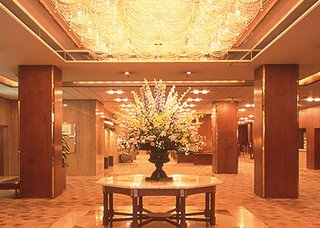
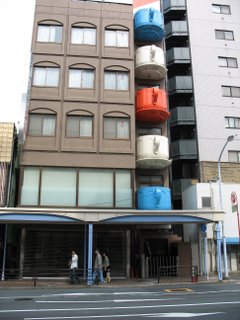











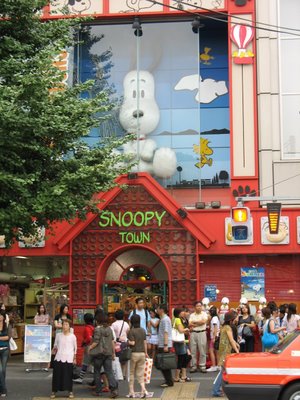



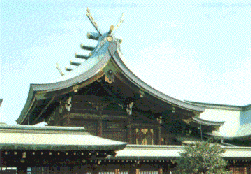

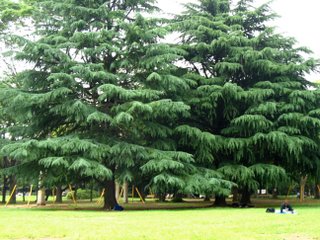





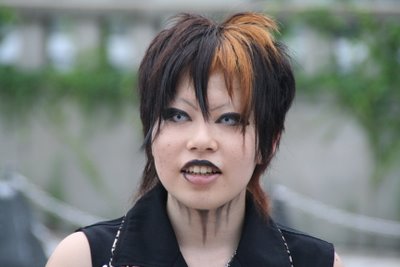







 If you need to use 2 different lines of Tokyo Metro to get to your destination, there is no need to buy 2 different tickets – one that has a correct fare fee is enough. Sometimes you will need to go throw a gate in the middle of such journey (to change from line to line), so don’t forget to collect you ticket on the other side of the gate, or else you would be able to exit the station on arriving to your destination. If the gate swallowed your ticket, approach the station attendants, that are usually stand by the gate and tell them of your situation (they will understand you, even if their English is not so good), and you will be given a new ticket, so you can continue to your destination.
If you need to use 2 different lines of Tokyo Metro to get to your destination, there is no need to buy 2 different tickets – one that has a correct fare fee is enough. Sometimes you will need to go throw a gate in the middle of such journey (to change from line to line), so don’t forget to collect you ticket on the other side of the gate, or else you would be able to exit the station on arriving to your destination. If the gate swallowed your ticket, approach the station attendants, that are usually stand by the gate and tell them of your situation (they will understand you, even if their English is not so good), and you will be given a new ticket, so you can continue to your destination.
 Here you see a sign on station number 2 of Tozoi Line.
Here you see a sign on station number 2 of Tozoi Line.
 If you bought a regular ticket it will be swallowed by the gate and if you bought a prepaid ticket don’t forget to collect it on the other side of the gate. In case the fare on the ticket is not matching the fare of you journey, the gate will not open and you will be asked to approach the station attendant.
If you bought a regular ticket it will be swallowed by the gate and if you bought a prepaid ticket don’t forget to collect it on the other side of the gate. In case the fare on the ticket is not matching the fare of you journey, the gate will not open and you will be asked to approach the station attendant. 
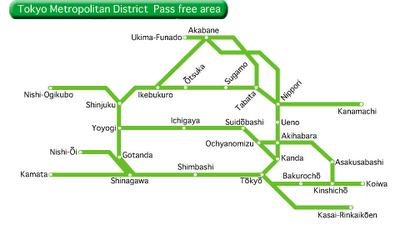 3.Tokyo Round Tour Ticket - this ticket offers unlimited travel for one day on JR East lines (local and rapid-service trains) as plus also allowing travel on subways of the Tokyo Metro and other subways, trams and buses. The ticket can be purchased at any JR East Ticket Office and Travel Service Center located inside the green area on the map below. Price 1580 Yen for adult and 790 Yen for a child.
3.Tokyo Round Tour Ticket - this ticket offers unlimited travel for one day on JR East lines (local and rapid-service trains) as plus also allowing travel on subways of the Tokyo Metro and other subways, trams and buses. The ticket can be purchased at any JR East Ticket Office and Travel Service Center located inside the green area on the map below. Price 1580 Yen for adult and 790 Yen for a child.


